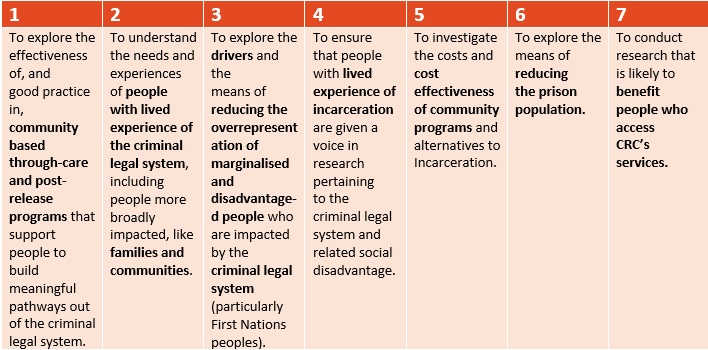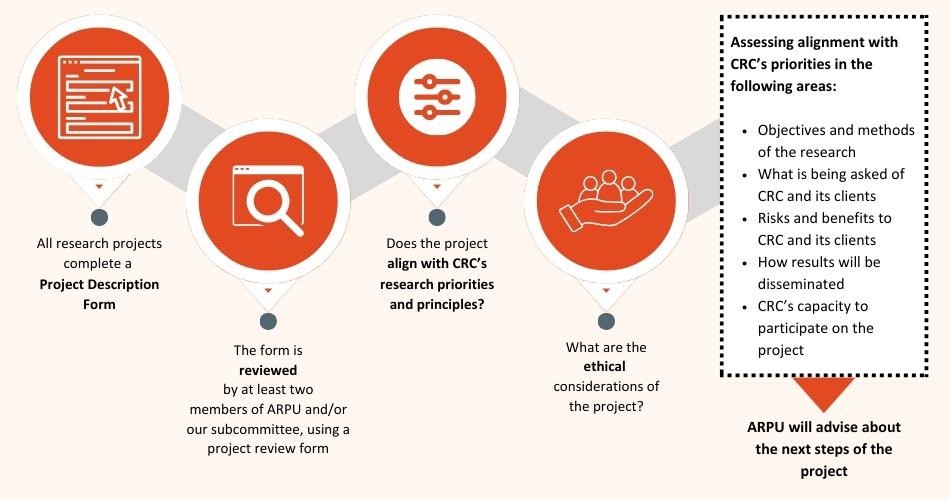Research
What type of research do we do at CRC?
Projects to improve our program operations and research aligned with our priorities
- We conduct internal research projects focusing on the key areas of CRC’s work and the needs of our clients.
- Our program evaluations are conducted either internally by CRC or by external research consultants.
- Evaluations conducted by external consultants are supported and carefully overseen by the Advocacy, Research and Policy Unit (ARPU). We believe that ‘embedded evaluation’ can help achieve organisationally relevant findings.
External research projects
- We encourage researchers to contact us at the project-conception stage so that CRC can contribute with practical knowledge and work on projects in a co-design or co-production method.
- We will also consider engaging in externally designed research if it aligns with our priorities and if CRC has the capacity to participate.
All research projects at CRC should be
conducted in line with CRC’s Research Priorities and Principles

How do we decide which research we participate in?
All research projects at CRC, including requests for research support, engagement or collaboration, are reviewed internally to assess how they align with our research principles and priorities.
We consider the ethical implications of the research and whether the project has formal ethics approval through a Human Research Ethics Committee (HREC).
We also consider whether the research is aligned with the National Statement on Ethical Conduct in Human Research and the Aboriginal Health and Medical Research Council of NSW (AH&MRC) Ethical Guidelines: Key Principles.
Our internal review consists of the following steps:

Are you interested in undertaking research with CRC?
Please fill in the Project Description Form and email it to arpu.team@crcnsw.org.au We will come back to you with a response as soon as we can.
page update April 2025
Help communities, families, individuals, and help create systemic change. Every donation to CRC will make a difference.
